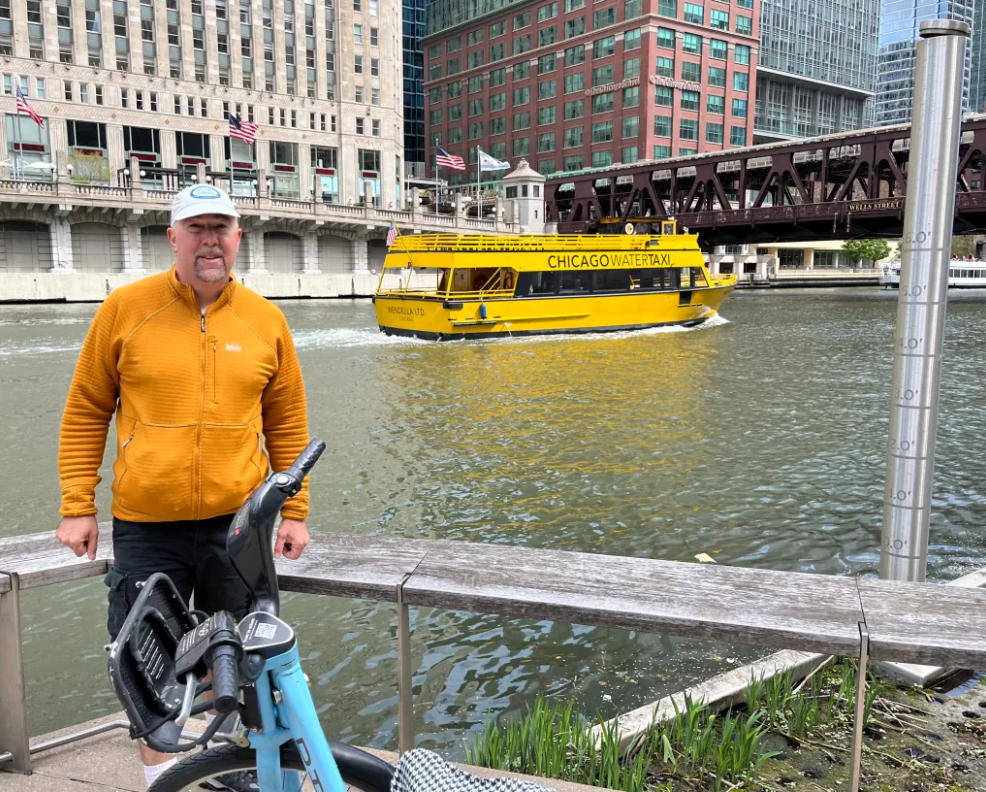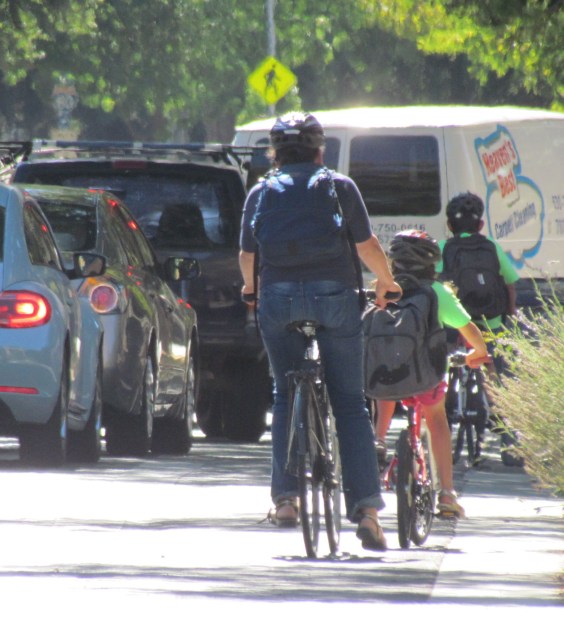SFPD Promises Smarter Approach to Enforcement on Muni
6:32 PM PST on November 23, 2009
 John Murphy, the SFPD deputy chief in charge of safety operations on Muni. Photo: Michael Rhodes
John Murphy, the SFPD deputy chief in charge of safety operations on Muni. Photo: Michael Rhodes Police enforcement on Muni is getting a major overhaul after years of inconsistent officer deployment. Under a revised Memorandum of Understanding between the Police Department and the Metropolitan Transportation Agency, officers will be required to ride lines that most frequently have problems with crime. Station captains will now regularly present Muni crime statistics for their districts at Comstat meetings, where they will be grilled on why crime has increased or decreased.
In his sixth day on the job, SFPD deputy chief in charge of safety operations on Muni John Murphy presented the plan at a two-hour hearing on Muni safety at a Board of Supervisors committee meeting today. Murphy said that district captains are now required to develop statistic-driven monthly plans for targeting crime on Muni. "Starting from today forward, crime is going to be addressed in a different way," said Murphy. "As opposed to having officers randomly get on buses of their own choice, the onus is going to be on the district station captains."
"We're going to mirror the zone enforcement that we've used over the last 20 months in San Francisco. We're going to use crime statistics, community input, and drivers' complaints and concerns."
In the past, many officers skipped out on their requirement to ride Muni during each shift, as stipulated by the Bus Inspection Program. By some accounts, that issue persists now, even among officers who are required to tag on and off with TransLink cards that track their ridership: Muni customers have reported seeing officers tag multiple cards. Murphy said a major part of his job will be making sure officers are actually riding when they're supposed to.
While the hearing was billed partially as an update on the SFPD TransLink pilot, little information was provided on officer compliance with the program. On Friday, Sgt. Wilfred Williams, an SFPD spokesperson, said that issues with the software were still being resolved, since TransLink readers were designed to deduct fares, not track officers.
 Preliminary SFPD TransLink data shows that officers are not riding where they're needed the most. Muni incidents, January-August 2009. Time spent on Muni by officers tracked by TransLink cards, September-October 2009. Source: SFPD
Preliminary SFPD TransLink data shows that officers are not riding where they're needed the most. Muni incidents, January-August 2009. Time spent on Muni by officers tracked by TransLink cards, September-October 2009. Source: SFPD Of course, with captains now directly reporting on Muni crime statistics in their district, there may be more pressure on them to actively enforce the Bus Inspection Program requirements among their officers.
Captain David Lazar, head of Ingleside Station, said new route by route statistics for Muni crime will make it much easier to effectively deploy his officers. "This is great data," said Lazar. "In the years I've been in the police department, we've never had a document like this," referring to a set of charts that outlined crime statistics by type, location, bus line, and hour in the Ingleside District.
"No longer is it acceptable for me as a captain to tell police officers to just ride when they want to ride. It's important for me to give them data," said Lazar, who implemented SFPD's first "Operation Safe Muni" sting in his district.
Murphy described the first citywide "Operation Safe Muni" sting on November 4th as "pretty successful," and called for further targeted enforcement operations. "What this pilot program shows is that there is a need for enforcement," said Murphy. "This needs to be continually and covertly."
At the beginning of the hearing, which was called by Supervisor Bevan Dufty, several Muni riders told stories of experiencing and witnessing violent attacks and robberies on the city's transit system. One rider, Tim Bishop, said he was attacked in January on a T-Third line vehicle by youths who were shouting anti-gay epithets. When he confronted them, he was beaten unconscious and repeatedly kicked in the head.
Several people expressed frustration that Muni operators didn't intervene or respond to attacks and robberies. Union president Irwin Lum said drivers are overtaxed and have little recourse. "Often times, our operators are under tremendous pressure not just to operate the vehicles but to manage what goes on in the vehicles," said Lum. "The most we are expected to do is call Central Control when there's an incident on our vehicles."
Dufty appeared mostly satisfied with SFPD's plan. "I appreciate that this is a new responsibility for you and that ... you've got a commitment to making this a more directed program, and making it more successful," Dufty told Murphy. "I'm going to ask you to continue this and come back and hear some progress in the next few months."
Stay in touch
Sign up for our free newsletter
More from Streetsblog San Francisco
Streetsblog SF editor Roger Rudick offers constructive criticism of Chicago’s downtown bike network
"There were blocks that felt very safe and very secure," he said. "But then you're immediately – voom! – disgorged into three lanes of moving traffic with no protection."
Commentary: There is Zero Ambiguity to the West Portal Tragedy
What happened in West Portal was entirely predictable and preventable. The city must now close Ulloa to through traffic and make sure it can never happen again




